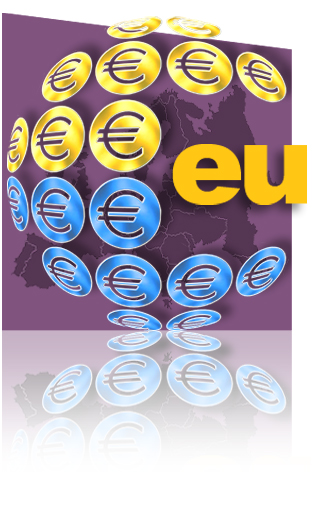European Economic Policy (2016)
Topic outline
-

Teaching Faculty
Judith Catherine Clifton
Departament of Economy
This course encourages students to reflect on the economic theory which gives rise to a range of possible economic policy options for European Union countries. It studies the implementation of economic policies and their consequences from an international perspective. From 2015/2016, this course is a Jean Monnet Module and will introduce innovative teaching methods. Students will participate in the EUCitizensLab and analyse for themselves the effects of policy on EU citizens. They will convert their results into a EUPolicyVideo for uploading on YouTube.
Keywords
Single Market, Evaluation of Public Policies, Services of General Interest, Citizens, Satisfaction, European Integration, Economic Policy, European Union, European Institutions
-

Course Information
-
Course: European Economic Policy
-
Code: G1639
-
Department / Unit: Department of Economics
-
Degree / Master’s: Degree in Economics
-
Faculty: Facultad de Ciencias Económicas y Empresariales
-
ECTS credits: 6
-
Language of instruction: English
-
Instructor: Judith Catherine Clifton
Course structure
Unit I. Introduction to EU economic policy
-
Introductory lecture. The Jean Monnet Module, purpose, objectives, expectations.
-
Topic 1. The origins, evolution and contemporary state of EU economic policy.
-
Topic 2. The makers of EU economic policy: the EU institutions and their roles.
Unit II. The economic policy in the EU
-
Topic 3. EU economic policy since Lisbon.
- Topic 4. Contemporary EU policy and economic governance: Who should govern where, why and how?
Unit III. Spotlight on Core EU economic policy competences
-
Topic 5. Single market.
-
Topic 6. Competition.
- Topic 7. Liberalization and deregulation.
Unit IV. Evaluating EU economic policy
-
Topic 8. Traditional approaches to evaluating policy.
-
Topic 9. New approaches to evaluating policy: A citizen perspective.
-
Topic 10. Why insights on satisfact.
-
-

Required reading list
-
Krugman, Obstfeld & Melitz (2012): «Introducción», «Comercio mundial: una visión general», «La economía política de la política comercia», «Los instrumentos de la política comercial», «La política comercial en los PMD»,«Controversías en la política comercial», «Los movimientos internacionales de factores», «La política macroeconómica y la coordinación con tipos de cambio flexibles», «El sistema monetario internacional: una visión historíca», «Areas monetarias óptimas y la experiencia europea» y «El dinero, los tipos de interés y los tipos de cambio». Economía Internacional: Teoría y Política.
-
J. Stiglitz (2003): «El malestar de la globalización». Cap. 1.
-
J. Bhagwati (2005): «En defensa de la globalización». Cap. 1.
-
OCDE (2010): «Perspectivas sobre el desarrollo mundial 2010: riqueza cambiante». OCDE.
-
CE (sin fecha): «La política comercial de la UE».
-
CE (sin fecha): «Integración monetaria y económica».
-
CE (sin fecha): «El presupuesto».
-
CE (sin fecha): «La política de IED de la UE».
-
J. Clifton, F. Comín & D. Díaz-Fuentes (2006): «La privatización de empresas públicas en la UE: ¿la vía británica o la senda europea?». Revista de Economía Mundial.
-
J. Williamson (2003): «No hay consenso: reseña sobre el Consenso de Washington y sugerencias sobre los pasos a dar». Finanzas y Desarrollo.
-
A. Costas Comesaña (2007): «De consumidor a ciudadano. El papel de la satisfacción del ciudadano en la sostenibilidad de los mercados de servicios públicos». ICE.
-
UNCTAD (varios años): «Informe de la inversión mundial».
-
Comisión Europea (sin fecha): «Consumidores».
-
Comisión Europea (sin fecha): «Política de competencia».
Suggested additional reading
-
R. Baldwin (1989): «The political economy of trade policy». Journal of Economic Perspectives, 3 (4).
-
P. Krugman (1997): «What should trade negotiators negotiate about?». Journal of Economic Literature XXXV.
-
F. Alonso Guinea & J.L. Cendejas Bueno (2006): «Convergencia presupuestaria y ciclo económico en la Unión Europea». Revista de Economía Mundial.
-
Comisión Europea (2008): «How can behavioural economics improve policies affecting consumers?».
-
G. Bel (2006): «Economía y política de privatización local».
-
J. Clifton, F. Comín & D. Díaz-Fuentes (2003): «Privatization in the European Union». Kluwer.
-
F. Comín & D. Díaz-Fuentes (2004): «La empresa pública en Europa». Síntesis.
-
W. Megginson & J. Netter (2001): «From state to market: a survey of empirical studies on privatization». Journal of Economic Literature.
-
J. Clifton, F. Comín & D. Díaz-Fuentes (2005): «Empowering Europe´s citizens? On the prospects for a charter of services of general interest». Public Management Review.
-
E. Helpman, & P. Krugman (1989): «Trade Policy and Market Structure MIT Press».
-
J. Santiso (2007): «La internacionalización de las empresas españolas: hitos y retos». ICE. Noviembre - diciembre.
-
J. Clifton, F. Comín & D. Díaz-Fuentes (2007): «Transforming public enterprise: integration, networks and transnationalization».
-
J. Santiso (2008): «La emergencia de las multilatinas». Revista de la CEPAL, 9. Agosto.
-
El Agraa (2011): «The European Union: Economics and Policies».
-
J. Pelkmans (2006): «European Integration: Methods and Economic Analysis».
-
M. Millet, P. Garcia-Duran & E. Casanova (2011): «Las relaciones comerciales de la Unión Europea con sus vecinos: ¿europeización, internacionalización o coordinación?». Revista de Economía Mundial, 27.
-
E. Palazuelos Manso & M.J. Vara Miranda (2008): «Las reformas liberalizadoras en el sector energético de la Unión Europea». Revista de Economía Mundial, 18.
-
F. Alonso Guinea & J.L. Cendejas Bueno (2006): «Convergencia presupuestaria y ciclo económico en la Unión Europea». Revista de Economía Mundial.
-
J. Clifton & D. Díaz Fuentes (2010): «Is the European Union Ready for Foreign Direct Investment from Emerging Markets?». K. Sauvant, W.A. Maschek & G. McAllister: «Foreign Direct Investment from Emerging Markets: Challenges Ahead». Ed. Palgrave.
-
J. Clifton & D. Díaz Fuentes (2010): «Evaluating EU policies on public services: A citizens' perspective, annals of public and cooperative economics». Vol. 81. Issue 2. Pp. 281-311. June.
-
J. Clifton et al. (2010): «The political economy of telecoms and electricity internationalization in the single market». Journal of European Public Policy. Vol. 17, 7.
-
J. Clifton & D. Díaz Fuentes (2010): «The European Union, southern multinationals and the question of the "strategic industries"». Ity. L. Brennan (2010): «The emergence Of southern multinationals and their impact on Europe». Ed. Palgrave.
-
J. Clifton, D. Díaz-Fuentes, M. Fernández-Gutiérrez & J. Revuelta (2012): «Territorial differences in access and use of services of general economic interest». Evaluating regulation from a regional perspective (in Spanish: investigaciones regionales).
-
J. Clifton, D. Díaz-Fuentes, M. Fernández-Gutiérrez & J. Revuelta (2011): «Is market-oriented reform producing a "Two-track" Europe?». Evidence from electricity and telecommunications annals of public and cooperative economics. Vol. 82. Issue 4. Pp. 495-513.
-
-

- MC-F-001. Introduction to Jean Monnet Module.
- MC-F-002. Topic 1. The origins, evolution and contemporary state of EU economic policy.
- MC-F-003. Topic 2. The makers of EU economic policy: the EU Institurions and their roles.
- MC-F-004. Topic 3. EU economic policy since Lisbon.
- MC-F-005. Topic 5. The single market.
- MC-F-006. Topic 6. Competition policy.
- MC-F-007. Topic 7. Privatization.
-
-

Assessment criteria
ASSESSMENT METHODS AND CRITERIA "EUROPEAN ECONOMIC POLICY"
Description
Type
Final assessment
Retake option
%
Final exam
Write exam
No
Yes
40%
-
Minimum mark: 5,00.
-
Duration:
-
Date: Día establecido por la universidad.
-
Condiciones recuperación: Examen final.
-
Observaciones:
Coursework
Coursework
No
Yes
40%
-
Minimum mark: 5,00
-
Duration:
-
Date: Durante el curso.
-
Retake conditions: Examen final.
-
Comments:
Practical classes
Other
No
Yes
10%
- Minimum mark: 0,00.
- Duration:
- Date: Durante el curso.
- Retake conditions: Examen final.
- Comments:
Participación en clase
Otros
No
No
10%
-
Minimum mark: 0,00.
-
Duration:
-
Date: Durante el curso.
-
Retake conditions:
-
Comments:
TOTAL
100%
COMMENTS:
-
Los alumnos/as pueden optar a entregar el Trabajo de Investigación escrito en Inglés o Castellano.
-
El plagio no es tolerado y resultará en suspenso automático en todos casos.
-
Para los alumnos/as que se evalúen exclusivamente por el Examen Final: el Examen Final representará el 90% de la nota. Estará compuesta de:
-
Un tipo test (40%).
- Pregunta(s) abierta(s) sobre los contenidos de esta asignatura (50%) disponibles en apuntes de clase, material en aula virtual, y en la bibliografía del programa (básica y complementaria).
-
COMMENTS for part-time students:
-
Para los alumnos/as de tiempo parcial que se evalúen exclusivamente por el Examen Final: el Examen Final representará el 100% de la nota. Estará compuesta de:
-
Un tipo test (40%).
-
Pregunta(s) abierta(s) sobre los contenidos de esta asignatura (60%) disponibles en apuntes de clase, material en aula virtual, y en la bibliografía del programa (básica y complementaria).
-
-
-



